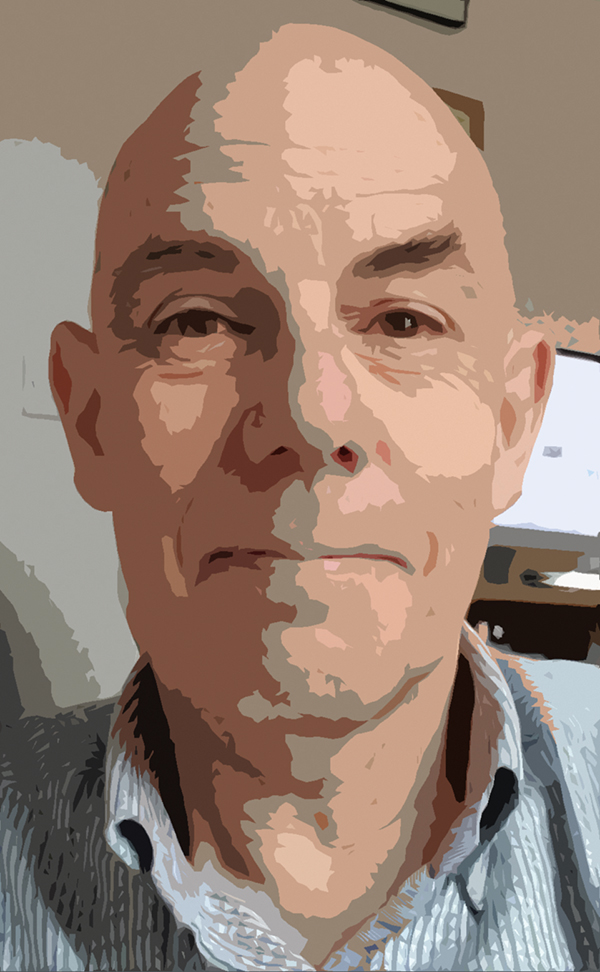Independent stone consultant Robert Merry has answered a call from ‘Our Future Health’ to take part in research to identify health risks. He believes one way the construction industry could reduce ill health in it is by de-stressing the way it works.
I am now officially a guinea pig for the nation. ‘Our Future Health’ has invited me to join research to identify future health risks such as dementia, cancer, diabetes, heart disease and stroke.
Apparently I have been randomly selected to take part. I question whether I want to know the potential risk of dying, and when, and from what. Still, when the nation calls…
At my age there is a lot for the researchers to get their stethoscopes into.
Firstly, there’s the on-going prostatitis that comes in two flavours – acute or chronic. Then there’s the bakers cyst and the arthritic knee. The 30-year-old anterior cruciate ligament (ACL) operation now needs doing on the other knee as well. Also two shoulder / neck sprains / ricks or whatever you want to call them – left and right.
From the exercise regime provided by the NHS physio to fix the shoulders, I appear to have strained my oesophagus, leaving me with something called ‘Globus’.
To improve health I started drinking an additional litre of water a day, thinking this would be good for flushing out infections and keep the system in good order. Instead, I can’t sit through a movie now without having to find a loo. I have officially joined the old man brigade.
I have remodelled working practices by reducing the long hours sat at the computer. I have reviewed my sitting position and bought a second hand desk with adjustable height from the local office clearance warehouse. I can now work from kneeling (usually when I’m chasing payment) through to fully standing up on my hind legs (mornings only).
All of this is particularly galling as I have lost two and half stone in the past two years. I exercise regularly, am careful what I eat and drink and have reduced my cholesterol from dangerously high to normal without taking any statins. Round of applause please.
So what is my secret to having a long list of niggling health issues? Old age for one. Checking with male friends of a similar age I discover we all have similar failing bodies and functions. There is also a communality in our working lives. Working in construction, we all experience or have experienced high levels of stress. Not that this is a sole cause, but I think there is a correlation between stress and some illnesses.
Interrupted sleep, churning an issue over and over in my internal monologue often results in physical symptoms – upset stomach, mysterious aches, fatigue, as well as poor mental health, leading to rash decision making (like that ill-advised email) and risk-taking that can put me in danger.
It’s common knowledge that working in construction is stressful. Men are three times more likely to commit suicide than the national average. There are two suicide-related deaths every day. The contributory conditions experienced in construction are well documented: short-term contracts, job insecurity, long hours, lengthy commutes, sometimes living away from the family, impossible timescales, unrealistic budgets, unending snagging and late payment.
For many in management roles there is the added burden of responsibility, not just for the project but also for the livelihoods and welfare of your staff working on it.
The ‘macho’ culture stops us talking about stress, which can bury the problem even deeper. This same culture has historically prevented the industry from creating more roles for women, and the male dominated statistics still reflect this, even though there are a lot more women in the industry nowadays than there used to be.
There are many organisations offering assistance and counselling specifically for this industry – Mates In Mind (www.matesinmind.org) and The Lighthouse Club (www.constructionindustryhelpline.com) among them.
There is also a study published by the Chartered Institute of Building (CIOB) called Understanding Mental Health in the Built Environment, which is free to download from tinyurl.com/CIOBmentalhealth. It offers examples, statistics and further contacts if you want to know more.
If you get passed thanking your lucky stars you haven’t got a list of ailments as long as mine, then you might want to give some thought to looking after yourself and your staff this year.
Finding ways to de-stress from the grind of construction could be a worthwhile ambition for the year ahead.

